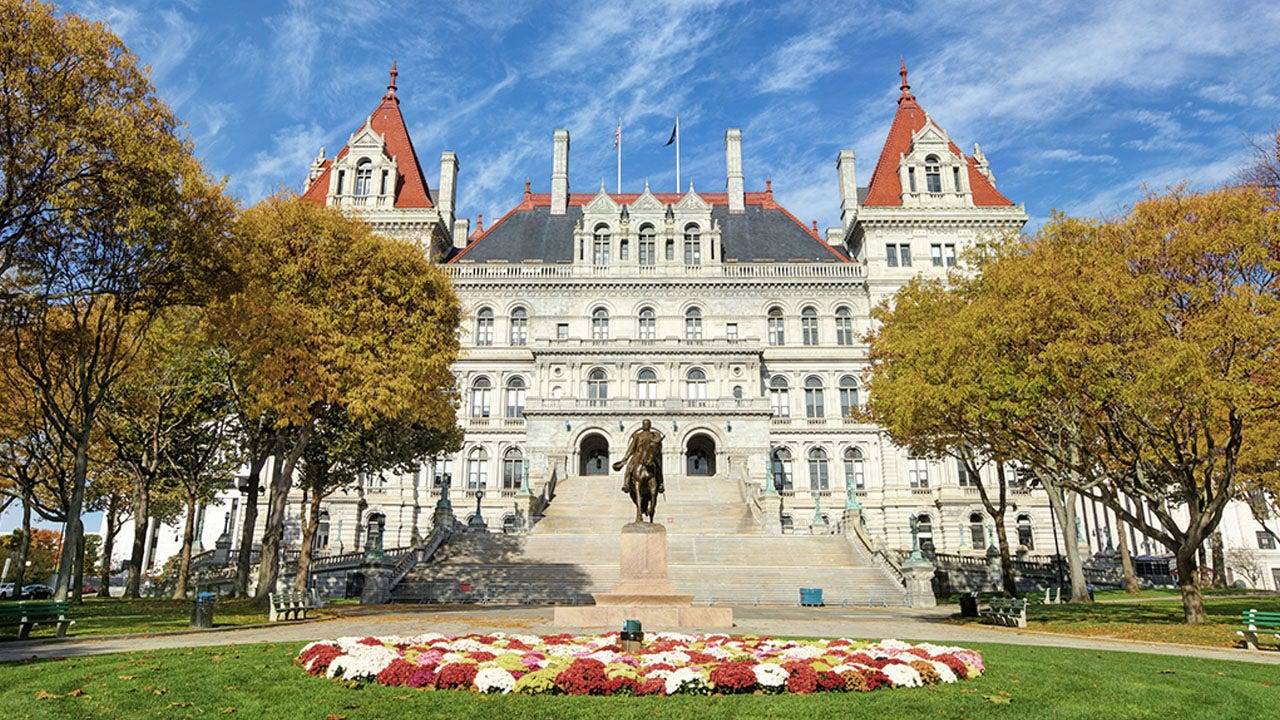The three keys USB logo is seen outside the London office of Swiss bank UBS in central London, on March 20, 2023.
Daniel Leal | AFP | Getty Images
Swiss giant UBS on Wednesday beat bottom line expectations amid sharp returns in investment banking while warning of the global trade impact of sweeping U.S. tariffs as it seeks to rein in steep share declines.
Net profit attributable to shareholders hit $1.692 billion in the first quarter, compared with a mean forecast of $1.359 billion in a LSEG poll of analysts. Group revenue over the stretch stood at $12.557 billion, versus analyst expectations of $12.99 billion.
Other first-quarter highlights included:
- Return on tangible equity reached 8.5%, versus 3.9% in the fourth quarter.
- CET 1 capital ratio, a measure of bank solvency, was 14.3%, unchanged from the December quarter.
The lender said it delivered a 32% year-on-year hike in revenues of the global markets unit of its investment banking arm, largely driven by “higher client activity in equities and FX with gains across all regions.”
Critically, the lender posted $1.629 billion in its net interest income (NII) — the difference between earnings from loans and investments and the payments on deposits — down 16% year-on-year and 11% from the fourth quarter, guiding for further declines in the June quarter.
“In the second quarter we expect net interest income (NII) in Global Wealth Management to decline sequentially by a low single-digit percentage, and we see a similar decline in Personal & Corporate Banking’s NII in Swiss francs. In US dollar terms, Personal & Corporate Banking’s NII is expected to increase sequentially by a mid-single-digit percentage, based on current foreign exchange rates,” UBS said.
Investors are keenly watching these metrics as European banks transition to an environment of monetary easing, particularly in Switzerland, which has been combating a strong franc and depressed inflation with interest rates as low as 0.25%.
UBS on Wednesday confirmed it had completed $500 million in share buybacks and intended to press ahead with a $2.5 billion repurchase plan for the remainder of 2025.
Tariff outlook
Deposed this month as continental Europe’s largest bank by market capitalization by Banco Santander, UBS has suffered share declines of roughly 10% in the year to date, with the brunt of losses logged after the White House’s imposition of tariffs on global trade partners on April 2.
Switzerland faces a 31% duty if it fails to agree a more conciliatory trade deal by the end of Washington’s 90-day reprieve in early July. Comparatively, the European Union was hit with 20% in U.S. levies.
Tensions with Washington and a potential recessionary outlook for the world’s largest economy spell trouble for the Swiss banking giant and its money-spinning global wealth management division, with around half of UBS’ invested assets concentrated in the broader Americas region last year.
“Rapid and significant changes to trade tariffs, heightened risk of escalation and significantly increased macroeconomic uncertainty led to major market volatility in the first weeks of April,” UBS said Wednesday. “With a wide range of possible outcomes, the economic path forward is particularly unpredictable. The prospect of higher tariffs on global trade presents a material risk to global growth and inflation, clouding the interest rate outlook.”
It flagged the possibility of “further spikes in volatility” as markets remain sensitive to new tariffs-led developments, noting that “Prolonged uncertainty would affect sentiment and cause businesses and investors to delay important decisions on strategy, capital allocation and investments.”
The picture of UBS’ long-term profitability remains darkened by questions over potential new — and more draconian — capital requirements from Swiss authorities, which have questioned the Swiss titan’s “too big to fail” status since its absorption of collapsed domestic rival Credit Suisse. The transaction — which one politician at the time dubbed the “deal of the century” — has propelled UBS down the path of maximum resistance against further restrictions, which it argues would undermine its competitiveness as an already adequately capitalized entity.
“UBS’s lobbying is both visible and unmistakable. It’s clearly resonating in various places. But once again: the Federal Council cannot be intimidated by lobbying, but must also represent the interests of taxpayers,” Swiss President Karin Keller-Sutter told broadcaster SRF last month, according to a Google translation.
“The Federal Council has one goal: that in the event of a crisis, a UBS that is systemically important is resolvable. This means that the systemically important parts of the bank can be separated in Switzerland. That must be the goal of the Federal Council and the new legislation.”
#UBS #earnings










